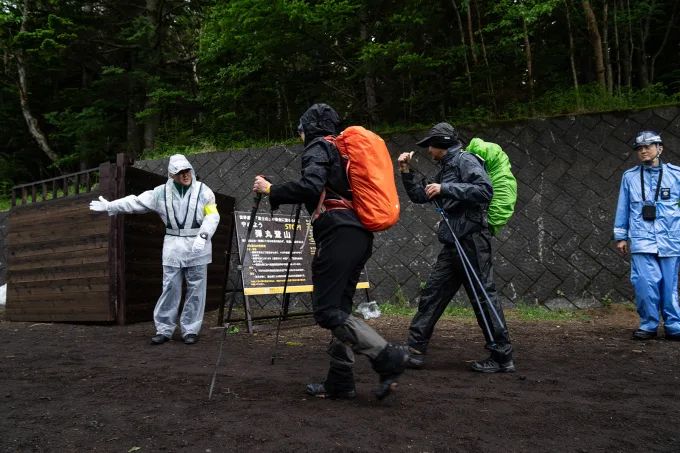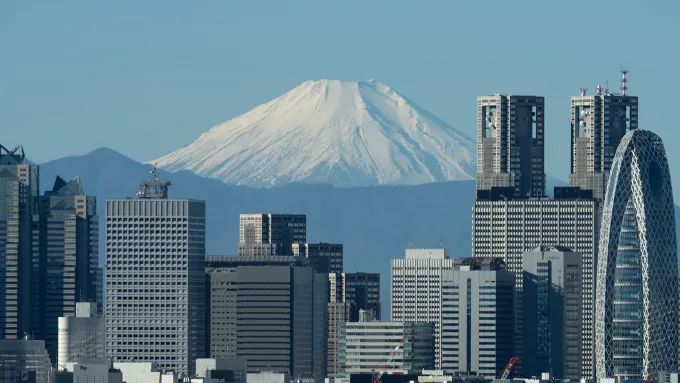Mount Fuji, a UNESCO World Heritage site and one of Japan’s most iconic landmarks, has long been a top destination for tourists.
However, increasing overcrowding and environmental concerns have led officials in Shizuoka and Yamanashi prefectures to implement stricter regulations for climbers ahead of the 2025 climbing season.
Starting in July, climbers will be required to pay a 4,000 yen ($27) permit fee and book their slots online, with a daily limit of 4,000 visitors. This is double the amount introduced in 2024 when a mandatory climbing fee replaced the previous voluntary donation system.
“By strongly promoting comprehensive safety measures for climbing Mount Fuji, we will ensure that Mount Fuji, a treasure of the world, is passed on to future generations,” said Koutaro Nagasaki, governor of Yamanashi Prefecture.
Beyond overcrowding, safety has become a growing concern. Many climbers have attempted the hike without proper equipment, wearing sandals or failing to bring enough water. In response, Shizuoka Prefecture—home to three of Fuji’s four main trails—has introduced a mandatory safety class. Prospective hikers must complete a short training session and pass a test to confirm their understanding of the rules.
Additionally, access to the mountain will be restricted from 2 p.m. to 3 a.m. for anyone not staying overnight in one of the hiking huts along the trails. These huts provide shelter for climbers who opt for a more gradual ascent rather than attempting the entire hike in a single day.
Japan has been grappling with overtourism at several of its popular sites. The Itsukushima Shrine, known for its floating torii gate near Hiroshima, began charging an entry fee in 2023 to manage crowds. Meanwhile, the snowy hot spring town of Otaru has hired security guards to regulate the influx of winter tourists.

Overtourism issues are not unique to Japan. Around the world, tourist behavior has sparked controversy in recent weeks. In Australia, an American traveler was filmed snatching a baby wombat from its mother, causing international outrage.
In the U.S., a Pennsylvania man attempted to pass through airport security in New Jersey with a live turtle hidden in his pants. Meanwhile, in China, a viral video showed two diners urinating into their hotpot broth, prompting the restaurant chain to issue refunds to customers.
Ireland has also faced unusual tourist antics. A campaigner in Dublin is fighting to stop visitors from groping the breasts of the city’s famous Molly Malone statue.

Unruly behavior has also plagued air travel this month. Incidents on planes have included biting, shoving, swallowing rosary beads, and even a clogged toilet forcing a flight to turn back. One passenger attempted to speak to former President Trump mid-flight, causing a disruption.
As global tourism rebounds, destinations are increasingly looking for ways to balance visitor demand with sustainability and local well-being. Mount Fuji’s new regulations are part of a broader trend to preserve natural and cultural landmarks for future generations.








